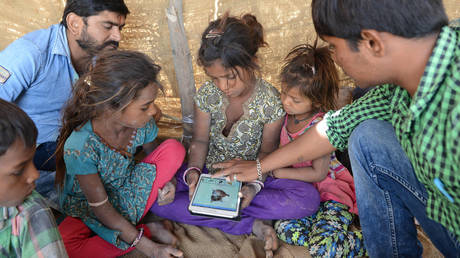
Poor internet connections and limited access to electronic devices have interrupted learning for hundreds of millions of kids in South Asia as schools were forced to shut down due to the coronavirus pandemic, UNICEF has warned.
“The safe reopening of schools must be considered an utmost priority for all governments” in the region because “low connectivity and device affordability” makes remote learning problematic, George Laryea-Adjei, the United Nations Children’s Fund regional director for South Asia, said on Thursday.
Laryea-Adjei was commenting on a fresh report by the UN agency, which revealed that the closure of schools amid the coronavirus pandemic has interrupted learning for some 434 million children in South Asia. That’s despite “significant efforts” by the governments to expand online learning.
In India, the Maldives, Pakistan and Sri Lanka, where the UNICEF study took place, “a substantial proportion of students and their parents reported that students learnt significantly less compared to pre-pandemic levels.”
Some 80% of Indian children between 14 and 18 reported lower levels of learning than when physically at school, while 42% percent of 6- to 13-year-olds didn’t get any remote classes at all, the paper said.
In Sri Lanka, 69% of parents of primary-school children confirmed that their kids were studying less or a lot less than prior to the pandemic. Meanwhile, 23% of younger children in Pakistan had no access to any device for remote learning.
Poor and disadvantaged households were obviously affected the most by this problem, as many families in South Asia were unable to afford even a single device with online access, UNICEF pointed out.
The situation was already dire in the region of 2 billion people before the pandemic, as almost 60% of children there were unable to read or understand a simple text by the age of 10, and the curbs introduced to stem the spread of Covid-19 made those numbers even worse, according to the agency.
UNICEF has recommended the authorities emphasize the vaccination of teachers to ensure that schools can safely reopen. And if future waves of the coronavirus, which has already infected 37 million and killed 523,000 people in South Asia, make a full return to in-person learning impossible, teachers must be better-trained and equipped to reach kids through a combination of mobile devices, TV, radio and printed materials.
“We need to build systems which can weather any storm and keep children learning, no matter the circumstances,” Laryea-Adjei insisted.
Think your friends would be interested? Share this story!




